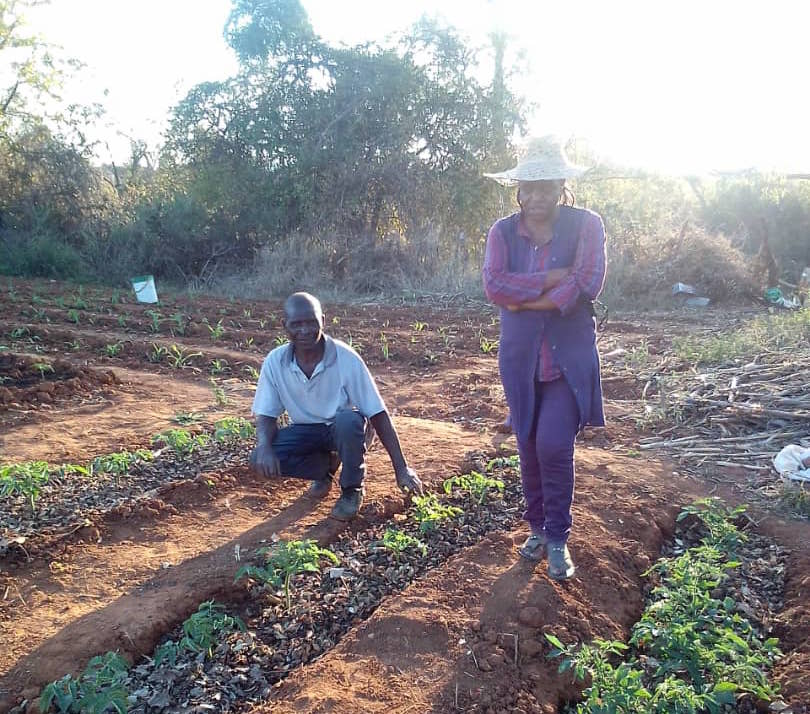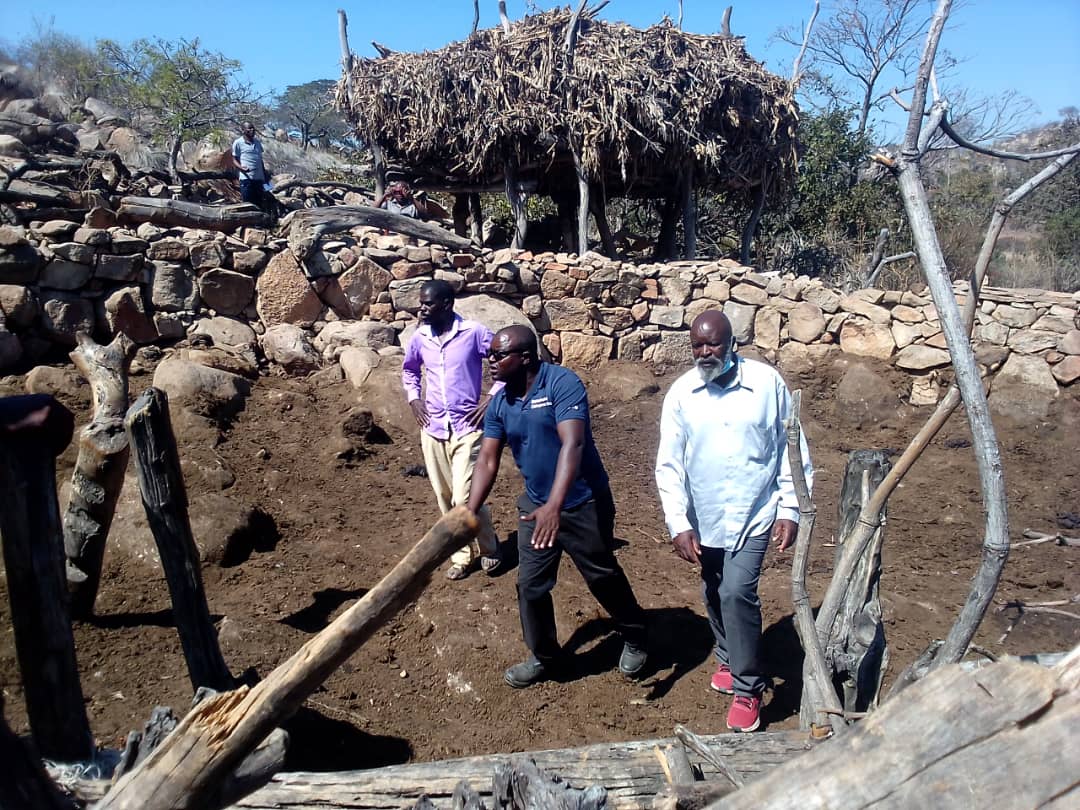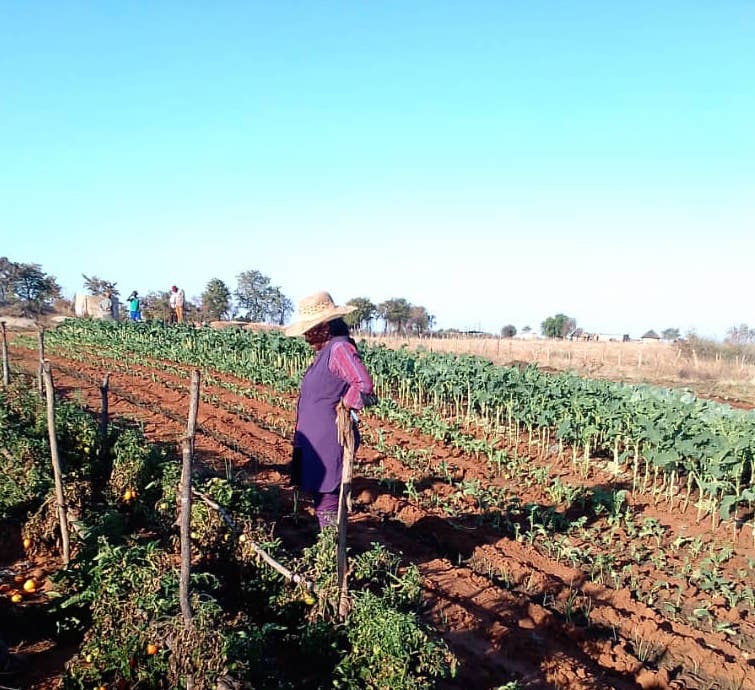|
Getting your Trinity Audio player ready...
|
By Wallace Mawire
A four-day farmer exchange visit facilitated by the Participatory Ecological Land Use Management (PELUM-Zimbabwe) in Mazvihwa community in Zvishavane from 10 to 13 August 2022 has capacitated local farmer organizations to learn and share knowledge, information, and ideas to promote water harvesting in the wake of climate change, especially in the arid region of the country.
PELUM Zimbabwe is a network of civil society organizations working with smallholder farmers to upscale participatory ecological land use management practices in Zimbabwe. The organization was founded in 1995 and is a member of the PELUM Association which operates in 12 countries in East, Central, and Southern Africa. The PELUM Association’s work is underpinned by agroecological principles.

Muonde Trust Agro-Ecological Centre in Mazvihwa, Zvishavane hosted PELUM partners Mazvihwa community. The purpose of the visit was to allow interaction and learning between Muonde and other PELUM partners.
Muonde is a community-based organization. The Muonde Trust was founded to keep connection, one that already exists between spirit, community, and ecology.
It grew out of a long tradition of action research that started there in the mid-1980s. The work is connected with and mutually benefits from the wider community of individuals and institutions in Zimbabwe and beyond who are engaged in food sovereignty and socio-ecological agenda and integrates social justice, gender equity, community governance, indigenous conservation, and agroecological approaches.
Among other things, Muonde Trust has also registered remarkable successes through the spread of the late Mr. Zephaniah Phiri`s water harvesting techniques which has seen an introduction and improvement in water harvesting and soil conservation in many areas.
Fomenting locally-driven creativity and sustainable development in Mazvihwa and neighbouring areas of central Zimbabwe, the organisation’s potency is in the realm of ideas and culture, its work involves mixing action research, local innovation, education, and training.
Activities that the organization has managed to promote and upscale in Mazvhihwa community include scaling up indigenous innovations around water harvesting, soil conservation, and the use of drought-resistant grains to build food sovereignty.
It is also developing local strategies to further integrate trees into arable lands to diversify food and provide other benefits while restoring soils and hydrological cycles, raising the visibility of architecture and management of domestic space, especially smoke lighting, preparation spaces, and water, as well as developing conceptual tools and indigenous management plans to better integrate agriculture, grazing, and woodlands at landscape scales.
The organisation is enhancing access to primary and secondary education, supporting self-expression and writing workshops, and connecting school learning with cultural life, constructing an Agro-Ecological Centre in Mazvihwa. These include the Muonde Trust administration block, as well as restoring sacred sites and ceremonies.
Participants, mostly from farmer organizations from various parts of the country, had an opportunity to learn about how Muonde Trust was started and how action research has given birth to the work and values that the organization stands for.
They had the opportunity at Muonde Agro-Ecological Centre to learn and also contributed to how Muonde could improve and utilise their centre.
There was also an opportunity to participate in the indigenous kitchen programme where young women and men are taught how to make traditional dishes, building on the diversity of traditional plants that farmers used to grow.
Participants also visited different sites in the three clusters in Mhototi ward.
The projects they saw throughout the visit focused on water harvesting, dry stone walling, domestic architecture, and woodland management.
They also looked at these, not just as the innovations of individual farmers, but asked questions on how the whole community could work together to transform their agroecological systems.
The exchange visit started in the clay soils of the Mazvihwa “deve” where the Agro-Ecological Centre and the neighbouring Mudhomori Village are located.
Another visit was made to Madyakuseni Village, which is on sandy soils (musheche), which presents very different problems and opportunities for the farmer and the water harvester.
Another visit was made to Jambanja resettlement area on the old Texas Ranch, which is an ancestral territory and mostly settled by people.
Here they are busy clearing the mopane forest and getting good crops.
On the last day, another visit was made to the makomo to the heart of the Mazvihwa chiefdom, beneath the Nhare hills and rocky places of the ancestors in the Madzoke Valley.

Here, participants, partner organizations, and local farmers saw what farmers are doing with vlei (makuvi) that have been farmed by people for two hundred years, and also how they have revived the art of dry stone walling as a community effort.
The participants were also given an opportunity to learn from the local communities how to peg dead-level contours using locally available resources and songs.
The visit to the Mazvihwa community enables farmers and seed growers to integrate what they learned into their farming practices. Partners who attended the exchange visit learned and also provided additional input on new agroecology practices strengthened relationships between the Zimbabwe Seed Sovereignty Programme (ZSSP) partners as well as farmers.
There was also a provision of technical support to partners and farmers for the implementation and integration of what they learned.
Some of the farmers and partner organizations who participated in the exchange visit were drawn from Gutu, Masvingo, Bikita, and Chimanimani.
Some of the partner organizations who participated in the exchange visit included Chinyika Trust, Zimsoff, Caritas, Fambidzanai Permaculture Centre, Njeremoto, Mwenezi Development Training Centre, TSURO Trust, SCOPE, CELUT, Zimbabwe Project Trust (ZimPro), and Participatory Organic Research Extension and Training (PORET) Trust.






